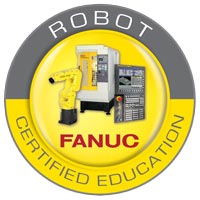
Welding Technology
Do you want to learn a critical industry skill that offers an interesting career with high pay?
Welding is the process of uniting or fusing metals or thermoplastics by applying intense heat. Skilled welders are in demand by large and small industries. Welding also offers the opportunity to be self-employed.
Central Carolina Community College's Welding Technology programs provide the training to take advantage of these opportunities.
Program Highlights:
- An Associates Degree in Welding Technology can be earned in five semesters.
- A Diploma in Welding Technology can be earned in four semesters;
- A Certificate in Welding Technology can be earned in two semesters during the day or three semesters at night.
- A Certificate in Robotic Welding can be earned during the day and night semesters.
- Hands-on lab experiences train students to entry-level industry standards.
- Instruction takes place at the Lee Main Campus and the Howard-James Industry Training Center.
- Students can learn SMAW (Stick), GMAW (MIG), FCAW (Flux), GTAW (TIG) and Oxyfuel, Plasma Arc, and Carbon Arc Cutting.
- Courses include Blueprint Reading,Welding Fabrication, Weld Inspection, GTAW (Tig Pipe), SMAW (Stick Pipe) and Automated Cutting/Welding.
- Students can earn Certifications from the National Center of Construction Education and Research (NCCER).
Welding is a high salary and high skill profession. Industry, both nationally and locally, needs skilled welders. The federal Occupational Outlook Handbook indicates that the need for welders will grow by 15 percent over the next 10 years. The Diploma and Certificate in Welding Technology provide students with a sound understanding of the science, technology, and applications essential for successful employment. Career opportunities exist not only in the welding and metalworking industries, but also in construction, manufacturing, fabrication, sales, quality control, supervision, and welding-related self-employment.
College Admissions
Curriculum Guides
Program Info Sheets
Contacts

Please Note:
Curriculum guides are for students enrolled during the current academic year. Students enrolled in a previous academic year should visit the Program Evaluation link in Self-Service to find the required list of courses for graduation. For assistance, consult your advisor.

